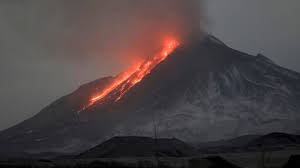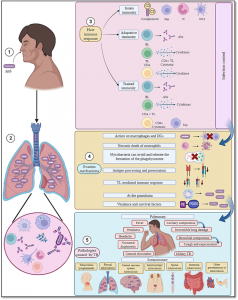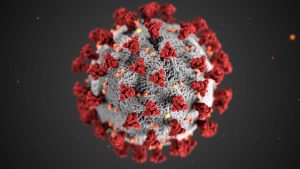Today’s Current Affairs: 20th August 2024 for UPSC IAS exams, State PSC exams, SSC CGL, State SSC, RRB, Railways, Banking Exam & IBPS, etc
Table of Contents
Gross Environment Product Index:

Uttarakhand has not just become the first Indian state to launch a Gross Environment Product Index.
- Gross Environment Product Index is presented as a novel, integrative metric designed exclusively to evaluate ecological development caused by human interventions.
- It will be determined by the condition of four main constituents of the environment which are directly impacted by development activities including air and water quality, number of trees planted in a year and the measure of the area of organic soil.
- The formula is, GEP index = (Air-GEP index + Water-GEP index + Soil-GEP index + Forest-GEP index)
- It provides quantzierte assessments of improvements in air, water, soil, and forest quality.
- It helps in assessing the impact of anthropological pressureon our ecosystem and natural resources.
- It provides a robust and integrated method for assessing a state’s ecological growth, capturing various facets of environmental well-being as a result of human actions
Guam Island:

INS Shivalik reached Guam for an Operational Turnaround on successful completion of the recently concluded world’s largest Multinational Maritime Exercise RIMPAC 2024.
- Guam Island is the largest, most populous, and southernmost of the Mariana Islands in the Northern Pacific Ocean.
- It is an island territory of the United States of America.
- It was a Spanish colony till 1898, then became a US territory after the Spanish-American War.
- Climate has a pleasant tropical climate tempered by the northeast trade winds and the north equatorial ocean current that flows west across the Pacific.
- Native Guamanians, ethnically called Chamorros, are of basically Malayo-Indonesian descent with a considerable admixture of Spanish, Filipino, Mexican, and other European and Asian ancestries.
- INS Shivalik is the first stealth multi-role frigatesbuilt for the Indian Navy.
- It is built at the Mazagon Dock Limited (MDL), located in Mumbai.
- It was commissioned into the Indian Navy on April 29, 2010.
RISE Accelerator:

The Atal Innovation Mission – in partnership with CSIRO, Australia – is inviting applications from start-ups and MSMEs from India and Australia for the Climate Smart Agritech cohort of India Australia.
- The India Australia Rapid Innovation and Start-up Expansion (RISE) Accelerator is a bilateral program led by CSIRO and the Atal Innovation Mission (AIM), NITI Aayog.
- It addresses India and Australia’s shared challenges with a focus on environment and climate issues by supporting the expansion of innovative agritech solutions across borders.
- It was launched in 2023 – has been instrumental in supporting start-ups and MSMEs in validating, adapting, and piloting their technologies for new markets.
- The Rapid Innovation and Start-up Expansion (RISE) Accelerator programme is designed to support businesses aiming for international expansion between India and Australia.
- This marks a significant milestone in fostering innovations that address India and Australia’s most pressing shared challenges in the agriculture sector.
- The Climate Smart Agritech cohort of the RISE Accelerator will focus on
- Start-ups and MSMEs with technologies and solutions that enhance agricultural productivity and resilience in the face of growing climate variability, resource scarcity and food insecurity.
- The program is particularly interested in start-ups and MSMEs with solutions that prioritise farmer needs, priorities, and on-farm practices.
- Over the course of the nine months of the accelerator program, the selected start-ups and MSMEs will benefit from a blend of self-paced online learning and in-person sessions, including immersion weeks in both India and Australia.
- The program will also involve field trials and technology pilots in the latter half.
Shiveluch Volcano : Erupted

Shiveluch volcano in Russia erupted after a 7.0 magnitude earthquake that struck off the eastern coast of the country.
- Shiveluch Volcano is located around 280 miles from Petropavlovsk-Kamchatsky, in Russia’s Kamchatka.
- It is one of the largest and most active volcanoes in Kamchatka, having erupted at least 60 times in the past 10,000 years.
- It has two main parts:
- Old Shiveluch, which tops 3,283 metres (10,771 ft), and
- Young Shiveluch– a smaller, 2,800-metre peak protruding from its side.
- Young Shiveluch lies within an ancient caldera – a large crater-like basin that likely formed when the older part underwent a catastrophic eruption at least 10,000 years ago.
- The volcano has been continuously erupting since August 1999, but occasionally undergoes powerful explosive events, including in 2007.
Ranthambore Tiger Reserve (RTR) : Penalty

The forest department recently imposed a penalty of Rs 1 lakh each on 14 SUV owners who illegally entered Ranthambore Tiger Reserve (RTR) during an adventure rally.
- Ranthambore Tiger Reserve (RTR) lies on the junction of Aravalis and Vindhyan ranges just 14 Kilometers from Sawai Madhopur district in Eastern Rajasthan.
- It is one of the largest tiger reserves in northern India and spreads over an area of 1411 sq. km.
- It was once a royal hunting ground for the Maharajas of Jaipur.
- The scenery changes significantly from the gentle and steep slopes of the Vindhyas to the sharp and conical hills of the Aravali valley.
- The Rivers Chambal in the south and the Banas River in the north bound the tiger reserve.
- The reserve is dotted with steep rocky hills, and the dominant architecture of Ranthambor Fort(built in the 10th era and a UNESCO World Heritage Site) adds to its landscape.
- A major environmental feature is the ‘Great Boundary Fault’ where the Vindhyas plateau meets the Aravali range.
- There are several lakes in the reserve known as Padam Talab, Raj Bagh Talab, and Malik Talab.
- Vegetation: Tropical dry deciduous and tropical thorn type.
Purandar Figs:

The Agricultural and Processed Food Products Export Development Authority (APEDA) recently facilitated the export of India’s first ready-to-drink fig juice, made from geographical indication (GI)-tagged Purandar figs, to Poland.
- Purandar’s figs, known to be one of India’s finest figs, are a GI commodity, known for their sweet taste, size, and nutritional benefits.
- It is cultivated in many villages of Purandar taluk in Pune district, Maharashtra.
- The agro-climatic factors such as dry weather, hilly slopes, well drained medium land are essential for Purandar Fig cultivation.
- Purandar has red and black soil that has high Calcium and Potassium content, which is responsible for the violet colour and size of the fig.
- It was awarded the GI Tag in 2016.
- Purandar fig is bell-shaped, larger in size than other varieties, and has a distinctive violet skin colour that differentiates itself from other varieties.
Subclinical Tuberculosis : Concern

Subclinical Tuberculosis (TB) is a growing concern in India, contributing to the slow decline in TB incidence rates despite advances in detection and treatment.
- Subclinical TB refers to a form of TB infection where individuals do not exhibit the typical symptoms of the disease, such as a persistent cough.
- This makes it harder to detect compared to active TB, which presents with more apparent symptoms.
- It is often identified through imaging techniques like chest X-rays or molecular tests, as it may not be noticeable through routine symptom-based screenings.
- Subclinical TB accounted for 42.6% of cases in the National TB Prevalence Survey (2019-2021), with similar findings in Tamil Nadu (39%).
- Although asymptomatic, individuals with subclinical TB can still spread the bacteria to others.
- High-burden countries, including India, have a considerable proportion of subclinical TB, which remains largely undetected, thus sustaining the transmission of the disease.
- Countries like Vietnam have successfully reduced TB prevalence by screening entire populations using X-rays and molecular tests, regardless of symptoms.
- Implementing similar large-scale screening in India would require strategic shifts, including mobile units and community engagement.
- This form of TB can contribute to the slow decline in overall TB incidence rates, as it remains largely undetected and untreated.
KP.1 And KP.2 : Covid 19 Strain

The central government has attributed the recent surge in Covid-19 cases in India to two strains, KP.1 and KP.2.
- These strains are categorised under the “FLiRT” group and have evolved from the JN1 Omicron variant.
- These are highly transmissible, causing mild symptoms such as fever, cold, cough, sore throat, body ache, and fatigue.
- KP.2 was classified by the World Health Organization (WHO) as a Variant Under Monitoring.
- Covid-19 is an infectious disease caused by the SARS-CoV-2 virus.
- COVISHIELD, Covaxin and AstraZeneca were among the recommended vaccines for Covid-19 in India.
Network Of Women In Media, India : Guidelines

The Network of Women in Media, India (NWMI) has released guidelines to improve safety and equity in newsrooms. These guidelines address issues like poor working conditions, harassment, and unfair practices.
Common issues identified include:
- Widespread workplace humiliation and harassment.
- Tolerance of abusive behaviour from senior staff, often excused by past experiences.
- Disparaging comments based on personal attributes like caste, gender, and sexuality.
- Severe attacks primarily target women and LGBTQIA+ individuals.
Key recommendations include:
- Adherence to legal work hours, with overtime recognition.
- Fair and transparent salaries, adjusted for inflation and comparable industries.
- Minimum of 30 days paid leave, including mental health and menstrual leave.
- Establishment of professional HR departments with clear policies on acceptable behaviour.
- Transparent performance appraisals and a zero-tolerance policy for toxic behaviour.
- Regular communication and training on workplace policies.
- Prompt filling of vacancies to avoid overburdening staff.
- Journalists should work no more than 144 hours over four consecutive weeks. A mandatory day off each week.
- Enforce a zero-tolerance policy for toxic behaviour, with disciplinary action against violators, regardless of position or popularity.
Global Development Compact:

PM Narendra Modi proposed a human-centric “Global Development Compact,” during the Voice of the Global South Summit.
- Global Development Compact will be inspired by the development priorities set by the countries of the Global South.
- PM Narendra Modi, in his opening remarks at the virtually held India-hosted third summit, emphasized that global governance and financial institutions established in the last century have failed to address the challenges of the current century.
- PM Modi stated that under this new Compact, needy countries will not be burdened with debt in the name of development finance. Instead, the Compact will draw on India’s own development journey and its experiences in development partnerships.
- The Compact will prioritize trade for development, capacity building for sustainable growth, technology sharing, project-specific concessional finance, and grants. To support trade promotion activities, India will initiate a special fund of USD 2.5 million, with an additional USD 1 million allocated to this cause.
- The prime minister said the compact will help in a balanced and sustainable development of the partner countries.
First Information Report (FIR):

In response to widespread protests following the rape and murder of a trainee doctor in Kolkata, the Union Health Ministry directed that heads of government hospitals must file a First Information Report (FIR) within six hours of any violence against healthcare workers on duty.
- This directive, issued by the Directorate General of Health Services (DGHS), addresses the increasing violence faced by doctors and healthcare staff, often from patients or their attendants.
- Public health is a ‘State’ subject and there is no Central law for preventing violence against healthcare workers (VAHCW).
- First Information Report (FIR) is a written document prepared by the police when they receive information about the commission of a cognizable offence
- It is a report of information that reaches the police first in point of time and that is why it is called the First Information Report.
Storm-2035 : Open AI

OpenAI recently said that it has banned ChatGPT accounts linked to an Iranian influence operation that used the chatbot to generate content to influence the U.S. presidential election.
- OpenAI downplayed the impact of operation, noting that the content did not engage much with audiences and was not widely shared.
- Storm-2035 is a covert Iranian influence operation identified by OpenAI, involving four websites posing as news organizations to target U.S. voters.
- The websites exploited issues like LGBTQ rights and Israel-Hamas conflict and also used AI tools to plagiarise stories and capture web traffic
- Operatives used ChatGPT to generate long-form articles and social media comments, which were then posted on various X and Instagram accounts.
- AI chatbots such as ChatGPT can potentially assist foreign operatives fool internet users by mimicking American users’ language patterns, rehashing already existing comments or propaganda, and cutting down the time it takes to create and circulate plagiarised content meant to sway voters.
- Apart from the upcoming U.S. presidential election, the operation covered global issues like Venezuelan politics, Latin rights in the U.S., the situation in Palestine, Scottish independence, and Israel’s participation in the Olympic Games. It also exploited popular topics such as fashion and beauty.
Multidimensional Vulnerability Index:

The UN General Assembly recently launched the Multidimensional Vulnerability Index (MVI).
- The MVI is a crucial tool in the global effort to address vulnerabilities and build a more resilient and sustainable future for all nations.
- The Multidimensional Vulnerability Index (MVI) is a comprehensive tool developed by the United Nations to assess the vulnerability of countries, particularly small island developing states (SIDS) and other developing nations.
- It aims to provide a more nuanced understanding of the challenges these countries face, beyond traditional economic indicators.
- It designed to highlight the unique vulnerabilities of countries that are often overlooked by conventional metrics like GDP per capita.
- It helps in identifying the need for concessional financing and other support mechanisms.
- It helps policymakers identify areas of weakness and prioritize interventions to enhance resilience and sustainable development.
- The index can by international organizations and donors to allocate resources more effectively, ensuring that aid reaches the most vulnerable populations.
Andhra CM Inaugurates Projects and Deals Worth Rs 3,683 Crore at Sri City:
Andhra Pradesh Chief Minister N. Chandrababu Naidu inaugurated 16 industrial projects in Sri City and signed deals worth Rs 3,683 crore. These new ventures are anticipated to generate over 15,000 jobs, underscoring the State’s commitment to accelerating industrial growth through enhanced efficiency.
Director General of the Indian Coast Guard, Rakesh Pal, died:
Director General of the Indian Coast Guard, Rakesh Pal, died of a severe cardiac arrest in Chennai. He was 59. He was in Chennai to participate in the Coast Guard function led by Defence Minister Rajnath Singh.
China Approves $31 Billion for 11 New Nuclear Reactors Across Five Sites:
China has approved the construction of 11 new nuclear reactors across five sites, with a total investment of approximately 220 billion yuan ($31 billion). This marks a record number of permits as the government intensifies its reliance on nuclear energy to reduce carbon emissions.
India-Japan Ministerial Dialogue In Delhi Today:
India and Japan will hold 2+2 Ministerial Dialogue in New Delhi on August 20. On the sidelines of the 2+2 dialogue, a bilateral meeting is scheduled between the Defence Minister and his Japanese counterpart.
Employees’ State Insurance Corporation:
Shri Ashok Kumar Singh, IAS took over the charge of Director General of Employees’ State Insurance Corporation (ESIC) under Ministry of Labour & Employment, Govt. of India at its Headquarters in New Delhi on August 19.
Net FDI Rises to $6.9 Billion in Q1 FY25:
According to the latest data from the Reserve Bank of India (RBI), net foreign direct investment (FDI) in India surged to $6.9 billion during the April-June quarter of FY25, compared to $4.7 billion in the same period last year.




